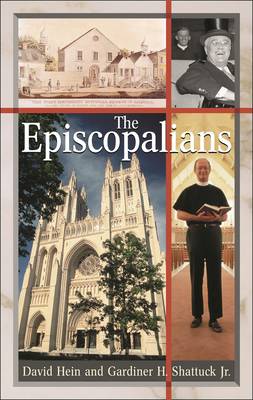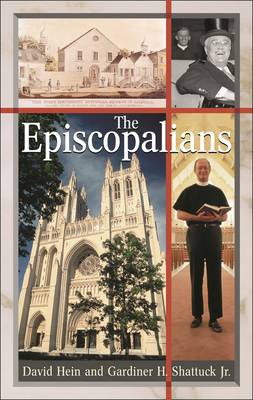
- Retrait gratuit dans votre magasin Club
- 7.000.000 titres dans notre catalogue
- Payer en toute sécurité
- Toujours un magasin près de chez vous
- Retrait gratuit dans votre magasin Club
- 7.000.0000 titres dans notre catalogue
- Payer en toute sécurité
- Toujours un magasin près de chez vous
Description
The story of the Episcopalians in America is the story of an influential denomination that has furnished a disproportionately large share of the American political and cultural leadership. Beginning with the denomination's roots in 16th-century England, this book offers a fresh account of the Episcopal Church's rise to prominence in America. Chronologically arranged, it follows the establishment of colonial Anglicanism in the New World, the national organization of the denomination following the Revolution, its rise during the 19th century, and the complex array of forces that affected the church in the 20th century--and continue to affect it today. The authors pay particular attention to the established leadership of the Episcopal Church, as well as to the experience of the ordinary layperson, the form and function of sacred space, developments in church parties and theology, relations with other Christian communities, and the evolving roles and status of women and minorities.
Shining a light on the lives of ordinary churchgoers and historically marginalized groups, the authors reveal the strengths and weaknesses of the Episcopal Church. While the church evolved into the denomination of the urban establishment, a politically, theologically, and socially moderate religious body that appealed to those seeking the society of their largely middle- and upper-middle-class peers, it also appealed to those whom the dominant society excluded from power: African and Hispanic Americans, women, and American Indians. The volume concludes with a chronology of important events and biographical sketches of major figures in the Episcopal Church.Spécifications
Parties prenantes
- Auteur(s) :
- Editeur:
Contenu
- Nombre de pages :
- 384
- Langue:
- Anglais
- Collection :
Caractéristiques
- EAN:
- 9780313229589
- Date de parution :
- 30-12-03
- Format:
- Livre relié
- Format numérique:
- Genaaid
- Dimensions :
- 160 mm x 240 mm
- Poids :
- 721 g

Les avis
Nous publions uniquement les avis qui respectent les conditions requises. Consultez nos conditions pour les avis.






